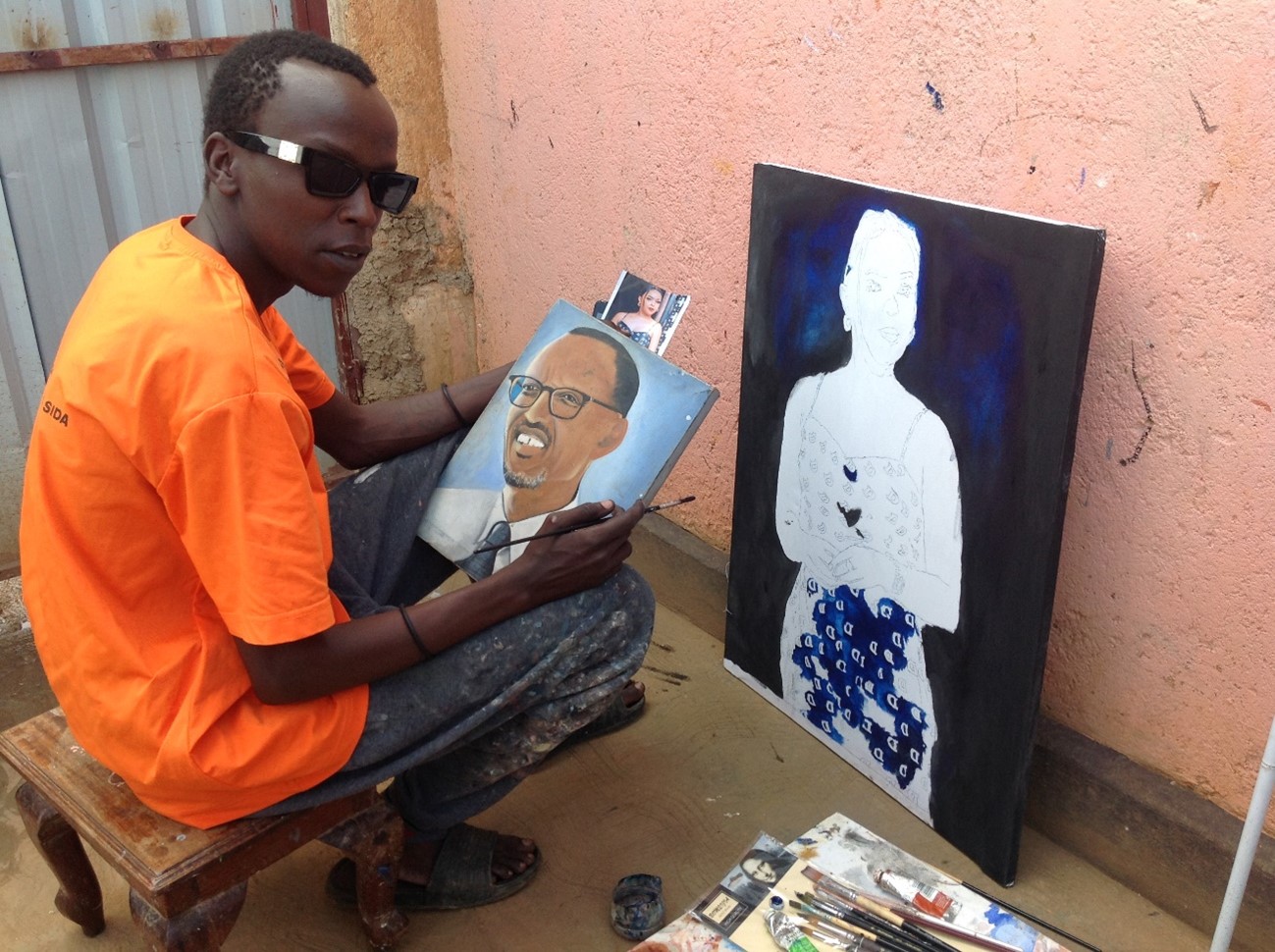
News
A Life’s Work
Play audio version
Two Rwandan Men Redefine Disability Through Sports and Art
February 12, 2025
KIGALI, Rwanda — Deaf since childhood, Jean Marie Furaha loved playing sports and helping with tasks around the house. When he was in his late 30s, his eyesight began to falter. Blindness came on slowly, and by age 40, he had lost his sight entirely, isolating Furaha and leaving him uncertain about his future. Though he could no longer see or hear, his body remembered the joy of running, jumping, and playing on the field.
“With the unwavering support of my family, I began to rebuild my life,” says Furaha, who was born in Burundi before arriving in Rwanda after the genocide against the Tutsi. He began to learn Braille and tactile sign language, which uses touch to communicate, so he could navigate his new world. A Catholic-run school for Deaf students in Kigali invited him to assist with their physical education program, and he developed creative coaching methods like using touch signals and guided movements to train students.
“I am a full-time sports coach at the school, mentoring students with and without disabilities,” Furaha explains. “My unique approach to coaching not only improves their physical skills but also teaches them valuable lessons in perseverance and teamwork.”
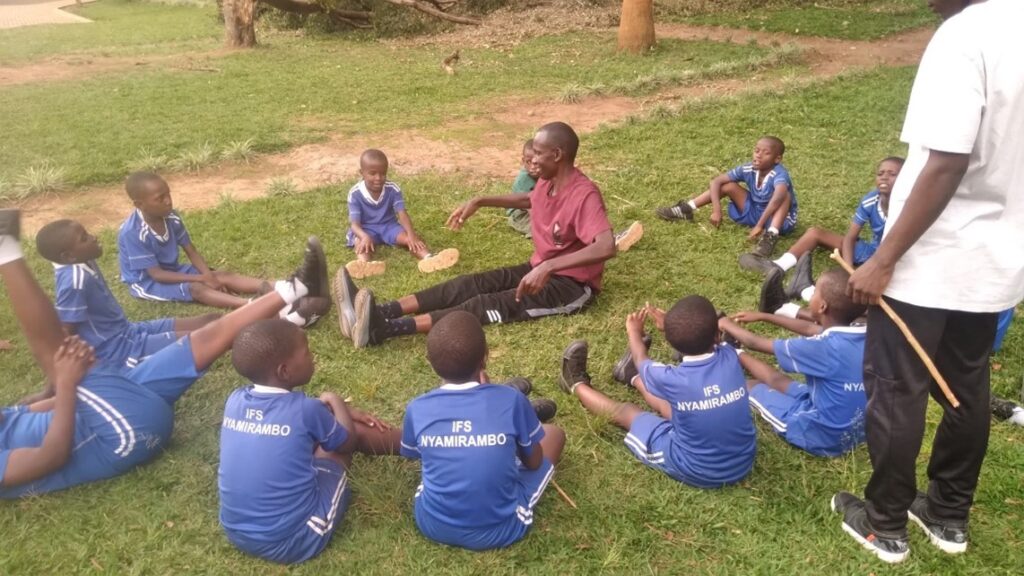
Pressing clothes and stitching buttons became Furaha’s second profession, one that he approached with the same dedication as coaching. “Many thought that I [could not] do such a job, but I continue to break barriers,” he says.
According to a 2023 report from the United Nations Development Programme, more than 446,000 people in Rwanda – about 3 percent of the country – live with disabilities. A 2019 report funded by the UK government found that working-age persons with disabilities in Rwanda face significant barriers to employment. While 52 percent of people with disabilities were employed, the employment rate among non-disabled adults was 71 percent.
Even within the most economically active age groups, the labor force participation rate for people with disabilities is just over 70 percent, compared to 90 percent for those without disabilities. These disparities make stories like Furaha’s – and those of other disabled Rwandans who find employment – all the more rare.
His Imagination Knows No Limits
Born in Kigali, Jean de Dieu Uwikunda grew up with a deep love of art. He built a family and found work at a car dealer in Kigali, where he would paint and repair vehicles. But when he lost his sight following a stroke, Uwikunda struggled to imagine how he could keep working. He contemplated ending his life, but after visiting a resource center for the blind, he found a way forward. “They empowered me to continue doing art regardless of the impairment,” he says.
Uwikunda began exploring art in ways he had never considered before. “Today, I use my right eye during the night by taking a torch [and] pointing it at the object I want to draw like a photo,” he says. “As I cannot see the colors I differentiate them by their smells. I know every color’s smell.”
Drawing is not just a job for Uwikunda, although selling his art is his primary source of income. It is his passion and a source of immense pleasure. Every time he sits down to draw, he enters a world where his imagination knows no limits. He finds fulfillment not only in creating but in the positive feedback he receives, knowing his art resonates with others. This recognition motivates him to continue, showing that blindness is not a barrier to creativity.
Francine Uwayisaba is a field officer at the Rwanda Union of Little People (RULP), in charge of the organization’s communications. She writes grants, manages RULP’s social media, and composes articles and weekly updates for its website.
Editing assistance by Ryan Di Corpo and Jody Santos
News From the Global Frontlines of Disability Justice

‘People like Me Can Dare to Dream of Standing Upright’
Rwanda’s decision to cover prosthetic and orthotic services under national health insurance is being hailed as a milestone for disability rights. Advocates say it marks a shift toward greater inclusion and access to essential mobility aids. “This is more than a health policy,” says Jean Baribwira. “It is dignity, inclusion, and hope.” For many, the change represents long-overdue recognition of mobility as a basic right.
Read more about ‘People like Me Can Dare to Dream of Standing Upright’

More Than Words
In Nigeria, native sign languages like Yoruba, Hausa, and Igbo Sign Language are far more than communication tools. They are living expressions of Deaf identity and culture. While often dismissed as unsophisticated or “pidgin,” these local variants foster deep connection, creativity, and self-expression among Deaf communities, particularly those left out of formal education. “It isn’t something one can learn online,” says Douglas Izu. “One learns it through deep immersion in the adolescent Deaf community.”
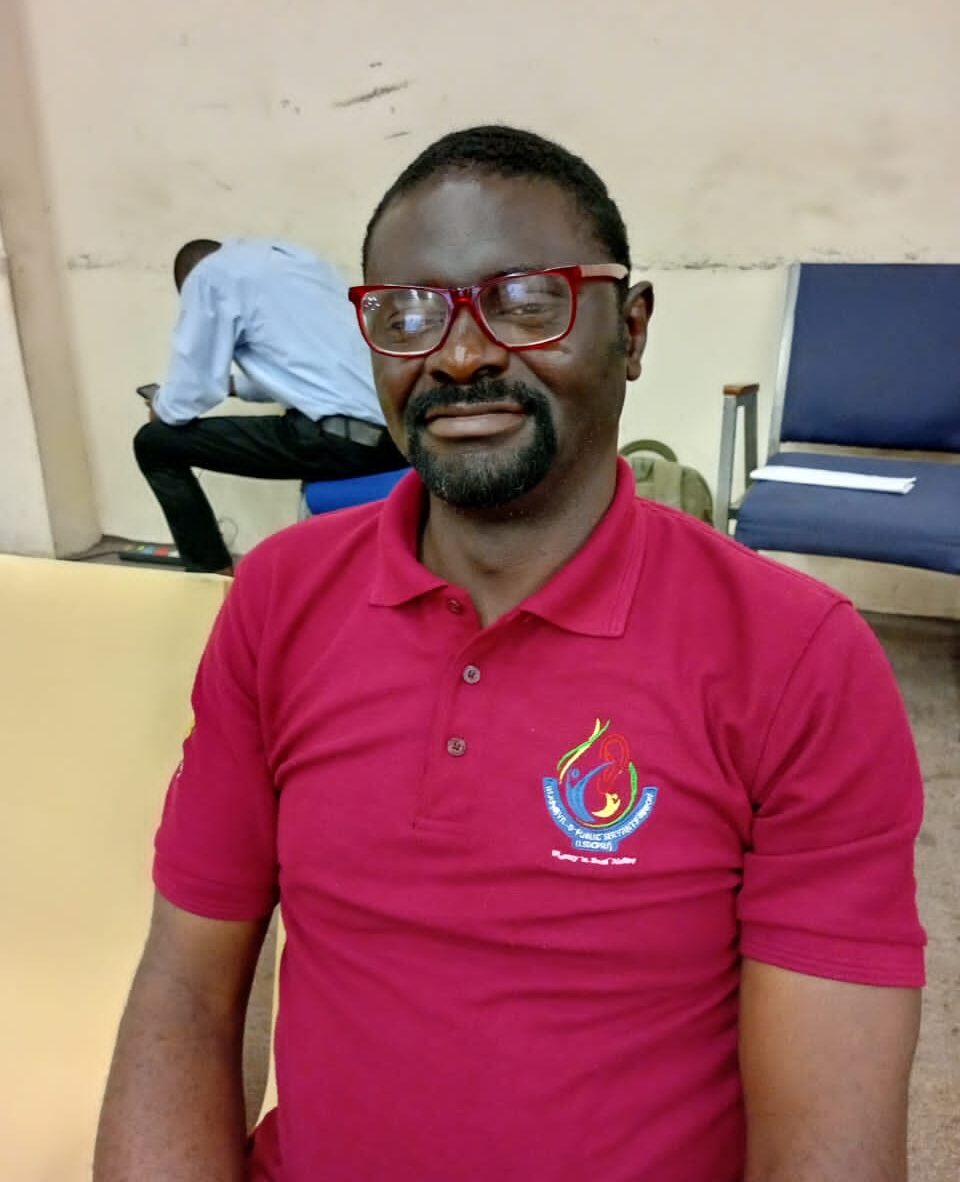
From Isolation to Advocacy
Nigeria’s DeafBlind community has long lacked recognition, but the launch of the Deaf-Blind Inclusive and Advocacy Network marks a turning point. Led by activist Solomon Okelola, the group seeks to address communication barriers and a lack of support. Among those affected is John Shodiya, who once thrived in the Deaf community but struggled with belonging after losing his sight.
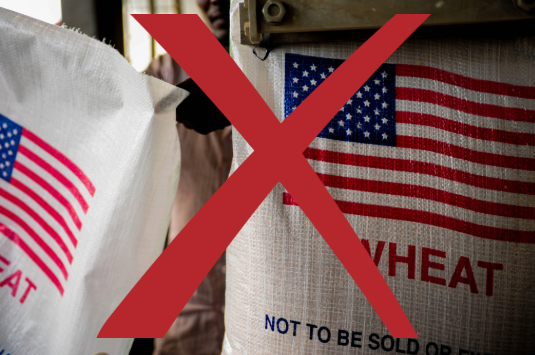
Disability Aid Disrupted
The Trump administration’s 90-day pause on USAID funding has had far-reaching consequences, particularly for disabled people and organizations worldwide, including members of the Disability Justice Project (DJP) community. Activists from Nigeria, the Democratic Republic of Congo, and Rwanda report severe disruptions, deepening challenges for marginalized communities, especially disabled people facing conflict, poverty, and structural discrimination.

A Life’s Work
After losing his sight, artist Jean de Dieu Uwikunda found new ways to create, using a flashlight at night to outline objects and distinguishing colors by their scents. His story, along with that of DeafBlind sports coach Jean Marie Furaha, is rare in Rwanda. While over 446,000 Rwandans have disabilities, a 2019 study found that only 52 percent of working-age disabled adults were employed, compared to 71 percent of their non-disabled counterparts.
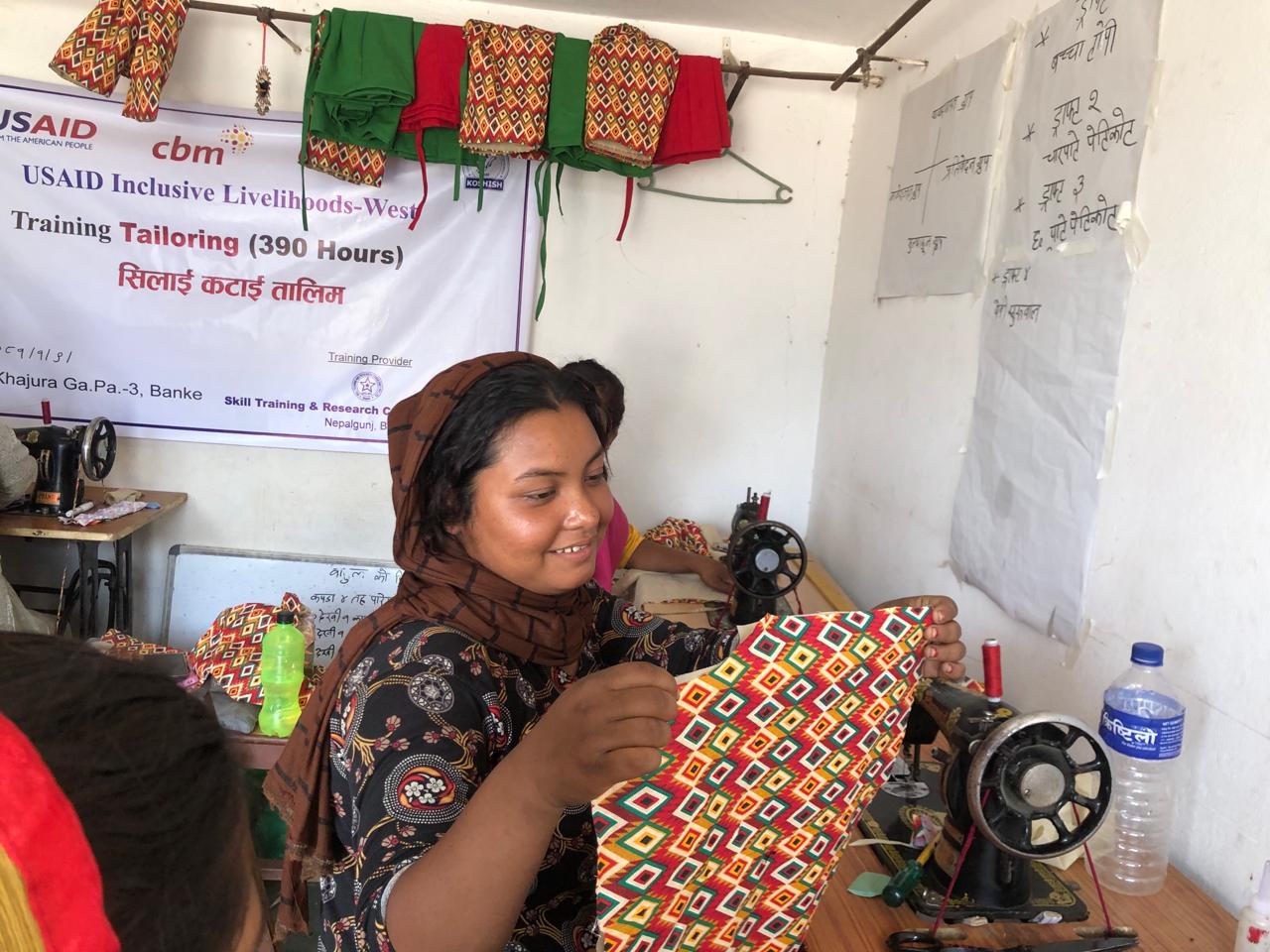
‘I Won’t Give Up My Rights Anymore’
After a life-altering accident, Lakshmi Lohar struggled with fear and stigma in her rural Nepalese community. In 2023, she found a lifeline through KOSHISH National Mental Health Self-Help Organization, which helped her develop social connections and access vocational training in tailoring. Today, Lakshmi is reclaiming her independence and shaping a future beyond the limitations once placed on her. “I won’t give up my rights anymore,” she says, “just like I learned in the meetings.”